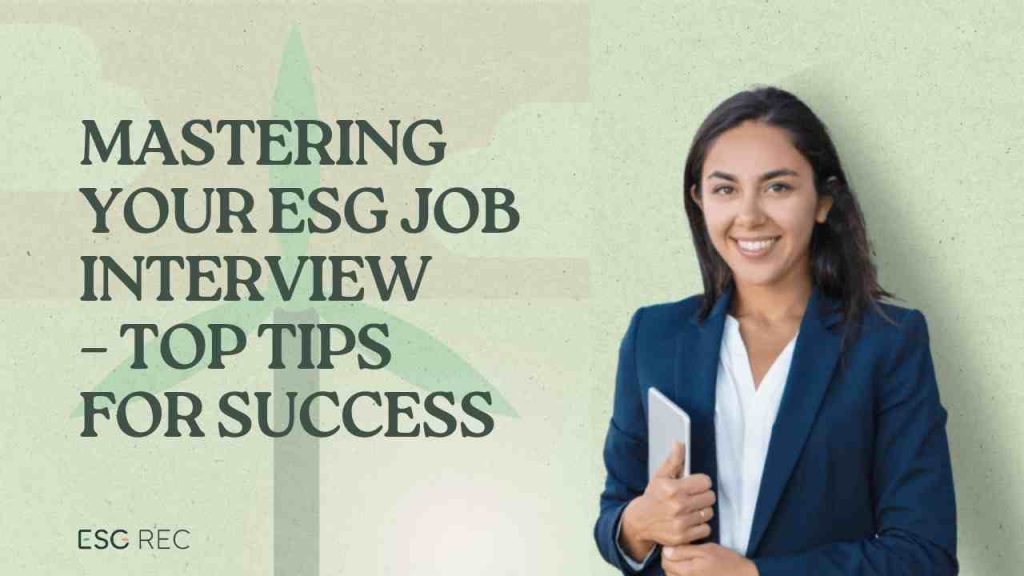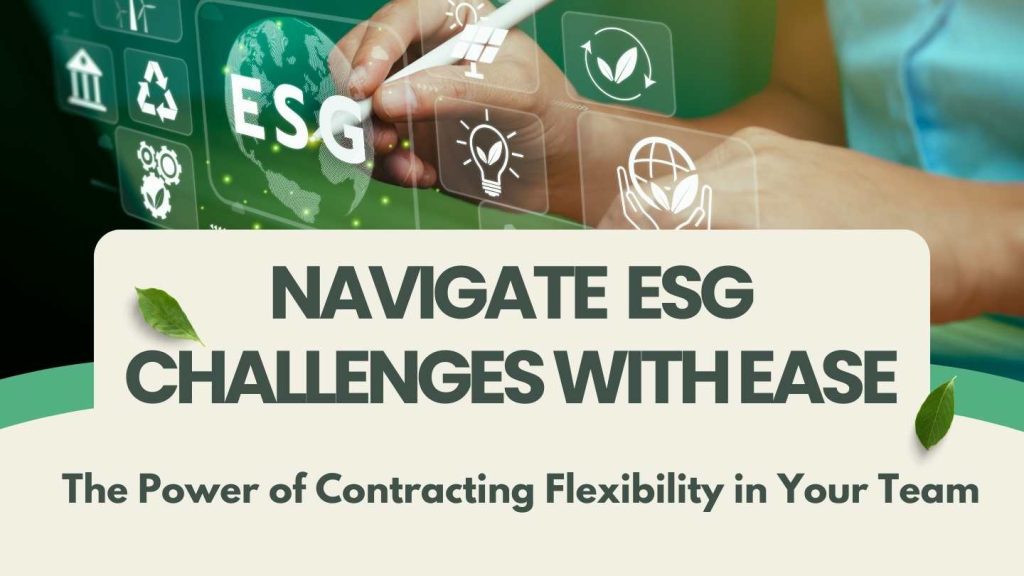
The ESG (Environmental, Social, and Governance) job market continues to grow rapidly as companies worldwide embrace sustainability and responsible business practices. Across the UK, Europe, and the US, demand for ESG professionals is on the rise, offering exciting opportunities for those passionate about making a difference.
If you’ve been invited to interview for an ESG position, congratulations! Interviews are a critical step toward securing your dream role, and preparation is key. This guide shares essential ESG job interview tips to help you stand out and succeed in the competitive job market.
1. Preparation Is the Key to Success
When preparing for an interview, start by reviewing the job description, your CV, and any other application materials. Understanding the role’s requirements allows you to clearly articulate how your skills and experience match the employer’s needs.
is a good fit for you.
Some insightful questions to ask might include:
– “Can you share more about the company’s progress toward its net-zero goals?”
– “What opportunities exist for employees to contribute to your ESG initiatives?”
– “How does the team collaborate to achieve sustainability milestones?”
Interviews are a two-way street, so use this opportunity to build rapport and ensure the role aligns with your professional goals.
4. Stay Positive and Focused
Interviews can be stressful, but maintaining a positive attitude can make a significant difference. Show enthusiasm for the role and confidence in your abilities. If you’re passionate about ESG, let your excitement shine through—it’s a quality employers value.
Take your time to answer questions thoughtfully. If you need a moment to gather your thoughts, it’s okay to pause. Clear, concise responses are more impactful than rushed answers.
By staying calm and engaged, you create a comfortable atmosphere that helps both you and the interviewer feel at ease. A confident and composed approach will leave a lasting impression.
5. The Growing ESG Job Market
The demand for ESG professionals continues to grow as businesses prioritize sustainability and responsible governance. Roles in areas such as sustainability consulting, carbon accounting, diversity and inclusion, and green finance are becoming increasingly common.
Employers are seeking candidates who bring not only technical expertise but also a commitment to driving positive change. By preparing effectively, showcasing relevant achievements, and staying authentic, you position yourself as a top candidate for these coveted roles.
Conclusion: Your Path to ESG Career Success
Navigating the ESG job market requires preparation, passion, and a strategic approach. Whether you’re an experienced professional or transitioning into sustainability, following these tips will help you excel in your interview and move closer to achieving your career goals.
If you’re seeking guidance, ESG REC is here to support you. We specialize in connecting professionals with opportunities in the growing ESG and sustainability sectors. From interview tips to market insights, we provide resources to help you succeed in your job search. Visit www.esgrec.com or email us at info@esgrec.com for more resources and ESG opportunities.
Good luck with your interview preparation! We look forward to helping you take the next step in your ESG career journey.

